8 Paramount Lessons Budgeting Has Taught Me
When it comes to family preparedness, budgeting is key. I’ve learned this the hard way, through trial and error. But, thankfully, I’ve also learned a few lessons about budgeting that have helped me become more prepared for whatever might happen. The steps necessary to know what is coming in and what is going out are so critical in today’s inflationary environment.
We feel we’ve lost control of our daily finances when we see prices for so many things go up every day. Let’s work together to figure out how best to deal with these financial challenges.
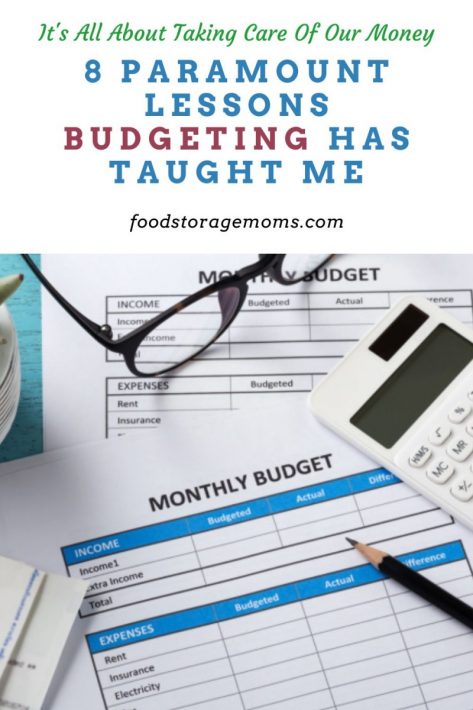
What is Budgeting?
Budgeting is the process of allocating your money towards different expenses, with the goal of saving money or at least being able to cover the expenses necessary to run the household. This should include creating a budget plan for your monthly spending, setting aside money for a rainy day fund, and planning for large purchases you see coming down the road.
Why Is Budgeting Important?
Budgeting is important because it helps you make the most of your money. When you budget, you are forced to think about your spending and make choices about how to most wisely spend your money. This can help you save money and make better financial decisions.
8 Paramount Lessons Budgeting Has Taught Me
Budgeting has been one of the most important lessons I’ve ever learned. It’s not always easy, but it’s worth it. Here are 8 of the most important lessons:
1. To Be Intentional With Finances
Budgeting has been a game-changer for me when it comes to my finances. Before I started budgeting, I felt like I was just throwing money around without any real purpose or plan. But once I started tracking my spending and creating a budget, I realized that I could be so much more intentional with my money.
It has taught me to be mindful of every purchase I make, and to think about whether or not it aligns with my financial goals. It’s also helped me to be more disciplined when it comes to spending and saving up for things that are important to me. The words “wants” and “needs” come to mind when you put your budget plan together, and sometimes it’s hard to differentiate.
2. To Prepare for Unexpected Expenses
Budgeting has definitely helped me to become more prepared for unexpected expenses. I’ve been able to use budgeting to set aside money each month so that I’m not totally caught off guard by an unexpected bill. Overall, budgeting has been a really helpful tool in making sure that I’m always prepared for whatever comes my way.
Not only has it helped me prepare for unexpected expenses, but it has helped me prepare for any unexpected situation. If you want to learn more about that, read my book Prepare Your Family for Survival: How to Be Ready for Any Emergency or Disaster.
3. To Live Within My Means
Budgeting has taught me a lot about living within my means. This has been a huge help in keeping my finances in order, and it’s also helped me to avoid getting into debt. I’m so glad my mother taught me to make bread and to plan a weekly menu before I go grocery shopping, which is a huge money saver when it comes to buying food for our family.
So many of us are on a fixed income, whether large or small. Some of you may be able to earn some overtime income to help stretch the money coming into your home each week or month. Not every job provides that flexibility. Over the past couple of years, many workers were concerned about whether their jobs were secure. It’s been good to see the job market improve for a large percentage of the workforce.
When I worked at a bank I taught a lot of my clients how to live on less every single month. We would go over their bank statements and break the expenses paid into categories. It was a shock to most how they were spending their hard-earned dollars. More was going into meals out and recreation than they ever imagined.
Others only used cash, so I suggested to them to write down every time they bring out cash to buy or pay for something. After a month or two we would meet again, if needed, to help change spending habits as appropriate.
4. Financial Boundaries
Helping others financially was always something I tried to do when I could, but I knew that I had to protect our retirement dollars. In other words, if I needed to help someone cover their expenses, this could possibly hurt my family when we decided to set money aside for our own needs, including retirement.
I have seen so many people handing out money to their kids or grandkids. We love showering them with gifts, but this is different. We have to take care of ourselves because our working days to bring in income may be coming to an end soon, so we need to be careful with funds going to the younger ones we are helping.
I’ve heard the phrase, “It’s easier to write out a check than teach them to budget” and I think it’s true. An even better quote is, “Give a man a fish, and you feed him for a day, teach a man to fish, and you feed him for a lifetime.” In other words, we need to teach skills so our kids and grandkids can take care of themselves rather than expecting to be helped every time they’re in a financial bind.
5. Saving Money is Important
Budgeting has taught me that saving money is important. When I was younger, I used to think that as long as I had enough money to cover my expenses, I was doing okay.
But I soon realized that it’s so important to have some cash in a savings account for unexpected expenses and for long-term goals.
It has helped me to become more disciplined when it comes to watching my spending and saving money whenever possible. I now have a specific goal in mind whenever I’m tempted to spend money unnecessarily. I’ve been able to use my savings to cover unexpected expenses without going into debt.
6. It’s Okay to Splurge Every Once in a While
Budgeting has also taught me that it’s okay to splurge every once in a while. I used to think that I had to stick to my budget all the time, but I’ve realized that it’s okay to spend money on things that are important to me, even if it falls in the “wants” category. We all need to have some fun and leisurely adventures, we just need to be careful not to overdo it.
As a matter of fact, setting some funds aside for recreation as part of the budget plan is a wise decision. You not only get to take a break and enjoy those things, but you don’t feel guilty since it was part of the budget all along.
7. You Can Live on Less Than You Think
Budgeting has taught me that you can live on less than you think. I used to believe that I needed a certain amount of money to live comfortably. But I’ve realized that you can actually get by with a lot less than you think by looking out for sales, taking good care of those things we buy, purchasing quality items that will last, and not feeling like we need the latest and greatest “gadget” or stylish clothing item we see.
8. Debt is Harmful
Last but not least, budgeting has taught me that debt is harmful. Because I worked in banking and owned my own mortgage company, credit is very important to me. Being debt-free should always be our goal. I guess that’s why Mark and I have one car, a 2009 Honda CRV. Would I love a new car? Yes, a car payment, no.
I will admit I would love a good road trip car, but I’m worried about the prices of everything going up, including car prices, whether new or used. Never in my life have I seen cars appreciate like now. Yes, I said that right, cars are worth more now than they were a year ago. We have all heard about the shortages of car parts, etc. It’s all about supply and demand.
We’ve all felt the pressure of making payments on those easy to get credit cards. Many of us don’t realize how long it will take to pay them off if we just make the minimum payment required. I hope we’ve also learned that the item(s) we have now that were purchased by credit card really aren’t worth the stress of making those payments.
How to Budget: Step by Step Guide
If you’re thinking about starting to budget, there are a few things you should keep in mind. Here’s a step-by-step guide to budgeting:
- Determine your income and expenses. The first step is to figure out how much money you have coming in each month, and how much you’re spending. This will give you a good starting point for budgeting.
- Identify your financial goals. What do you want to achieve with your budget? Do you want to save up for a down payment on a house? Are you looking to get out of debt? Knowing your goals will help you make decisions about where to allocate your money.
- Make a budget plan. Once you know your income and expenses, it’s time to start planning how to best use your money. Begin by allocating funds for essential expenses like housing, food, and transportation. Then, you can start setting aside money for other goals like savings or debt repayment. Make sure to leave some room in your budget for flexible expenses like entertainment or dining out, if there’s room for those.
- Stick to your plan. Budgeting takes discipline. Once you’ve created your budget, make sure to stick to it as closely as possible. This means being mindful of your spending and making adjustments to your budget as needed.
- Consider using software to track your spending. We’ve been faithful users of Quicken and Quickbooks for years. Mark makes sure each expense is accounted for when he balances our bank statements. There are other products out there, check them out since it really helps.
More on Saving Money & Budgeting
- A Basic Guide to Saving Money on Groceries
- 55 Money-Saving Tips
- How to Save Money on Canned Goods
- 9 Ways to Make Easy Extra Money
Final Word
Budgeting is a great way to get a handle on your finances and achieve your financial goals. These 8 budgeting lessons have helped me to become more financially responsible and have taught me the importance of saving money.
If you’re thinking about starting to budget, keep these lessons in mind and you’ll be on your way to success. Do you have a budget? What budgeting lessons have you learned? Let me know in the comments below! May God Bless this world, Linda
Copyright Images: Monthly Budget AdobeStock_234832461n thanksforbuying

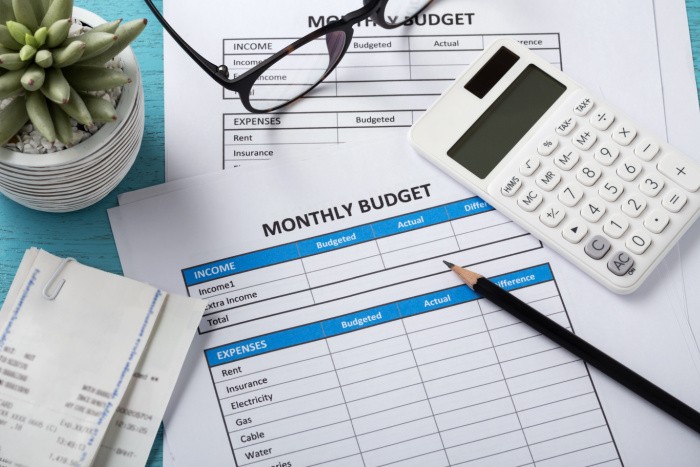




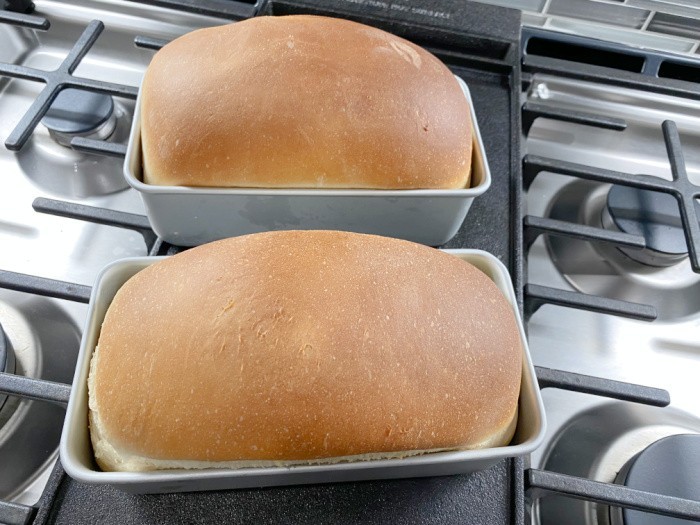








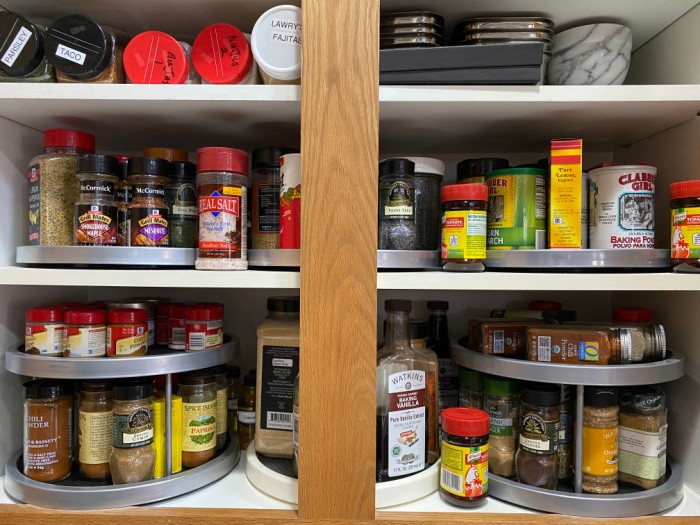
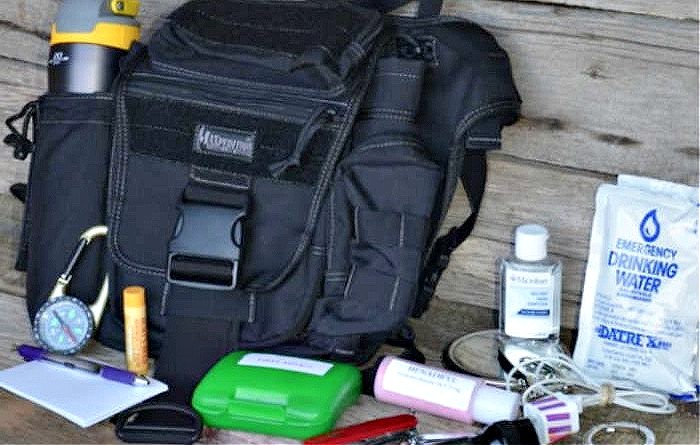
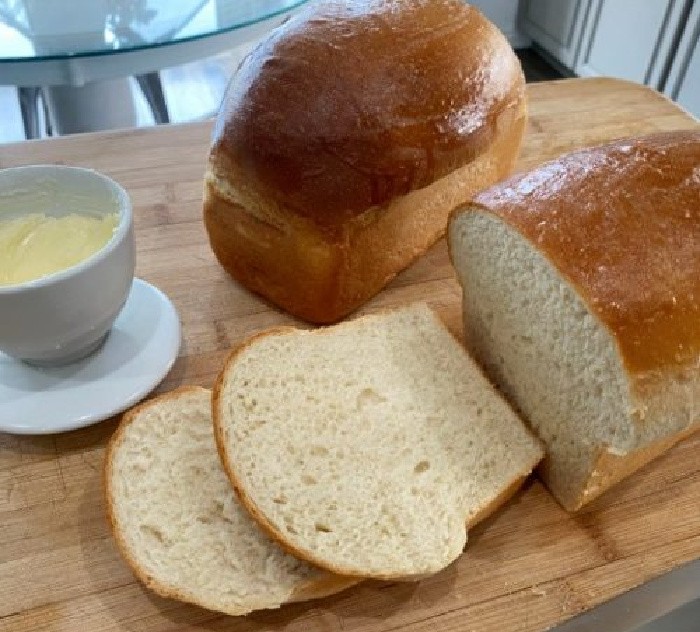

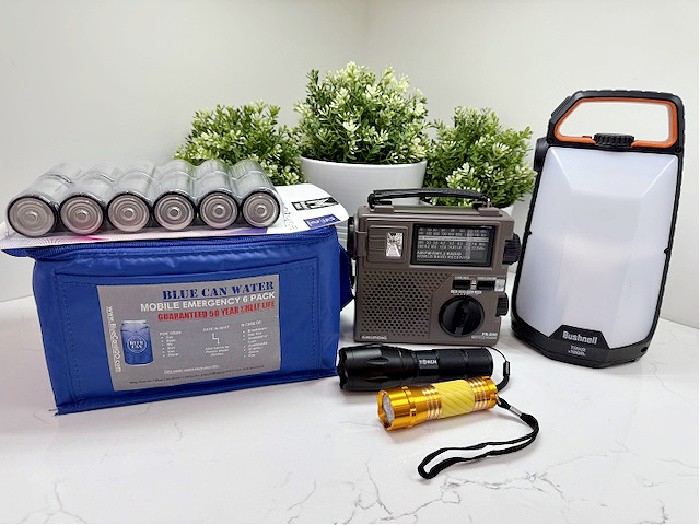
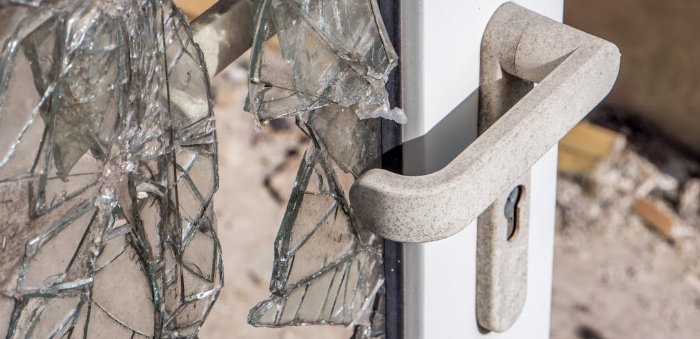

I have done a budget for at least 30 years. I couldn’t function without it. I’m debt free except for my house. May, a year ago, out of the blue I decided to start prepping. I’m retired, single, with several pets. Live in Florida. First thing I did to prep was buy your book. It was a godsend. Bless you and your work. I have food and supplies to last me for a year at least. Much love to you.
Hi Melody, oh my gosh, you made my day, my friend! Thank you for your kind words. Much love back to you in beautiful sunny Florida!! Linda
Best budgeting thing I did when my son was born was to set aside spending money of equal amounts for my husband and myself. He was a spender and I was a saver, so I felt like nothing was “mine” when I stayed home with the kids. It really made a difference in relationship stability because I felt more valued and could save or spend from my “own” money for the kids and me.
I remember one of author Robert Heinlein’s characters saying “budget the luxuries first” , not as in go into debt, but make sure you have some luxuries.
The other best saying I remember is “spend money on experiences, not things” . Memories are made that way– except maybe not from extravagant birthday parties for tiny kids, who will not remember them anyway!
Hi Jan, oh my gosh I LOVE LOVE LOVE your comment! Spend money on experiences, not things!!! LOVE IT! Linda
I keep track of our budget using spreadsheets, one for each month. Each spreadsheet has two worksheets. One for the first half of the month, which is when I get my Social Security. The other one is for the second half of the month, when my wife gets her SS.
Each worksheet starts off with incoming money, SS and what is left over from the previous period. Then I list money that goes to savings, and money allocated to each of us. This last allocation is very important to each of us. Like Jan said, it’s important to have your own money to spend as you wish.
Then I list the scheduled bills that need to be paid each period. Lastly, I list all expenses that come up as they occur. I also have a running total that shows how much is left as expenses are entered in the spreadsheet.
It’s always great to know where your money is going and how much you have left.
Hi Karl, I LOVE LOVE LOVE your comment! I’m not good at spreadsheets but writing down what we have and what our expenses are is the name of the game. I love your idea! Linda
Linda,
Spreadsheets aren’t that difficult (says someone who worked in IT for over 40 years). Anyway, I have a budget template that I would be willing to share. I can send it to you and you can share it with others. I will also include instructions. It’s so easy your kids/grandkids can do it!
Hi Karl, oh I would love it, thank you!! You may have to email it to me at foodstoragemoms@yahoo.com. Hopefully, I will know how to upload it into my blog. I am not an IT person at all!!! LOL! Thank you!! Linda
Linda, this is one of your best and most helpful articles yet. Having adequate cash to get you through emergencies is critical, and if you don’t budget you probably won’t have it on hand when you need it.
I too learned about budgeting the hard way and I’m still not that great at it—(Books and tools are my greatest weakness budget wise).
But I learned that parking your money in a savings account is a losing proposition, because interest rates don’t come close to keeping up with inflation.
Better to invest in stocks in good, solid dividend paying companies. Yeah, stock prices go up and down, but the interest rate on virtually all dividends beats what banks pay.
And once following your budget allows you have cash set aside for emergencies (6 months worth is what most experts recommend) you can then invest in commodities such as canned or other foods you can store long term as well as other preps.
Oh, and Karl’s comment was golden. I use Excel.
I also use credit cards to buy almost everything and pay them all off every month. The advantage this gives me is it keeps my credit rating up and each statement gives me an itemized list of expenses–many of which can be imported into my Excel spreadsheet.
Ray,
I appreciate your comment on my suggestion. I use Excel also!
Hi Ray, thank you for your kind words, my friend. I totally agree with your comment. Linda
I thank you Linda for all your wisdom. My husband took an early retirement which we do not regret, because it allowed us to travel while still physically able. It has required us to watch our wallet. We have been retired for over 16 years. We have provided several Disney, Hershey and Lake Placid vacations for our kids and their families. The experiences will be with us forever. Our ideas of gifts are trees and home upgrades, like wiring for whole house generator. One book I remember reading was called The Millionaire Next Door. We have always lived beneath our means, remodeled our home ourselves, started saving with a US Savings Bond coming out of each blue collar paycheck. I remember giving my kids our checkbook to balance….when they asked why, I said I already know how to do it. As a result, all 4 have college degrees and own their own homes. Now we can focus on our prepping.
Hi Chris, you made a plan and knew how to stick to it. You should pat yourself on the back and be grateful you raised wise children. Memories are better than gifts for sure. We have always done our own remodeling as well. There’s a reason, we saved money. That book is priceless! Linda
Hi Linda:
I think we all need to think about everything we buy. For mother’s day I was a bit aggravated with my husband who told me to get whatever I wanted. I knew I needed 2 more external hard drives to put all my stuff on from the computer but I also knew they were $69 each but I bought 2 of them anyway. He wasn’t happy but he didn’t say anything. I am sorry now that I did it but I had to clean off my computer. You know how it is that you get so much stuff and you have to clean it off. I will never do that again.
Hi Jackie, I think we all sometimes second guess our purchases, it’s okay. Here’s how I see it, the data on your computer is important to you. It’s done and you have saved your “stuff”. It will be years before you need to get another external hard drive, right? By then they could be double the price. Having two external hard drives is peace of mind. Hugs from Utah, Linda
Hi Linda, you couldn’t have published this at a better time. I have to straighten a problem. We’re overextended. My husband has been tending finances since my disability. I was following a strict budget myself until then. He feels the one who makes the money controls the money. So I am saving this article to show him later. Then we will set up a balance sheet to see exactly where we are and what is due when. From there we can re establish the budgeting system I used for years. I took a bookkeeping course in high school and have a couple of books that I used to formulate a budget system on paper. I had a thesis book I used to track things.like priorities, and the dates bills were due. Then assigned which check would pay them. Thank you so much for this article it is very succinct. You obviously have the credentials to say what you have, so he can’t discount it as my gibberish. He’s German and very stubborn. Thanks for this marvelously helpful book.
Hi MaryAnn, isn’t it wonderful that everything is “fixable”? I use this word a lot now and when I raised my girls. Life brings us curves, but it’s how we deal with them that makes a difference. When I was in banking I heard your statement a lot, “the one who makes the money controls the money”. WHOA, those were my exact words when a couple would be sitting in front of me, and one or the other would say that statement. Yes, I was a bit outspoken but kind. I would say, are you a team? We “earn money” in different ways. Some work hard at home without a paycheck. Enough said. MaryAnn, you will correct your situation, you will be fine, my friend. Keep budgeting, Hugs from Utah, Linda
Hubby and I took the Dave Ramsey Financal Peace money management class. One of my favorite parts is what Dave Ramsey calls “sinking funds” and I call “savings funds”. We have saving fund envelopes for a lot of things: Holiday Gifts (Christmas, birthday, weddings, baby showers, etc.); camping/adventures; car repair;medical expenses, home repair; appliance repair/replace; Spoil Granddaughter; the cat; etc.
Everyone laughs at me about the Spoil the Granddaughter fund, which is $5/week. I started this as soon as our oldest daughter announced her pregnancy.
In 2017, we bought a new house and the day after closing the ‘fridge died. I had cash to buy a new ‘fridge from the appliance repair/replace.
Holidays, I started saving for Christmas 2022 in December 2021. It came in nice when I found some gifts for the kids while we were on vacation in June.
We doubled our camping/adventure savings fund when we retired and had more time to camp. We use a credit card to make campground reservations and then pay it off before our trip starts. It’s nice to know that everything except food is paid for a month or more before our camping trip.
Hi Topaz, I have used the envelope system for over 50 years. I’ve been married 53 years in July. I taught my clients when I was a banker how to use them. It’s truly a life saver. I love your Spoil the Granddaughter one. I have 17 grandkids, they are so fun! Life is good when you know how to manage your money. Thank goodness you had the repair envelope for the fridge! Good job! Linda